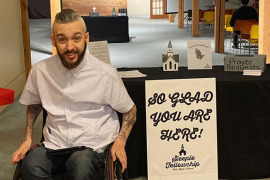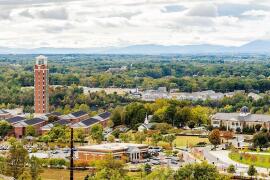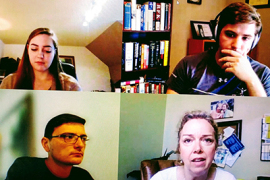Looking for a Meaningful Career? Three Reasons to Become an ESL Teacher

Do you want to engage foreign cultures or equip non-English speakers in the U.S. with life-changing skills for the future? Are you committed to using your teaching skills to bridge cultural gaps and enact social change? If you are passionate about helping students succeed and answered “yes” to one or both of these questions, a career as a TESL teacher may be perfect for you.
Simply put, a TESL teacher is someone who Teaches English to Speakers of other Languages. And as America’s immigrant population continues to grow at a dramatic rate, the demand for qualified TESL teachers is greater than ever before.
National statistics show that the nation's immigrant population has doubled since 1990, and English language learners remain the fastest growing population in U.S. public schools. By 2025, English language learners (ELLs) will make up 25 percent of the U.S. public school population.
Yet, demand is quickly outpacing supply — and the number of non-native English speakers in the U.S. who lack the ESL services they need is vast. The U.S. desperately needs qualified teachers who are eager to help ELLs thrive by implementing consistent learning strategies and collaborating with those from different cultures.
Below are three reasons to consider a career as a TESL teacher in the U.S.
You’ll Make a Difference in Society
While working with those who speak another language can be a challenge, it’s also a rewarding and empowering experience. English language skills are necessary to reaching one’s full career potential in America. By giving ELLs the tools they need to succeed in American society, you’ll be impacting not just your students, but future generations, too.
If you feel called to become a TESL teacher, you may want to earn a Bachelor or a Master of Arts in Teaching English as a Second Language. By earning a TESL degree, you’ll acquire the learning and communication strategies you need to help non-native English speakers develop their language skills, both written and verbal. In addition to learning the syntax of the major languages of the world, a TESL degree will help you effectively serve as a cultural bridge, connecting a student’s native culture with their experience in the U.S.
For many ELL students, you’re more than just a teacher; you’re the key to better economic and job prospects. As a TESL teacher, you’re helping to build healthier, happier lives and more stable communities.
Your Job Prospects are Great
According to the Bureau of Labor Statistics, TESL and adult literacy teachers are expected to experience job growth of 15 percent between 2010 and 2020. In states currently experiencing an influxe of immigrants, such as Florida, Texas ,and California, that demand is expected to increase significantly.
In 2016, 32 states reported not having enough teachers for ELL students, according to a report from NPR. Additionally, English language learners continue to fall behind in terms of academic achievement. Researchers surmised that “no matter where they go to school, most ELLs are struggling because they have little or no access to quality instruction tailored to their needs.”
As a TESL teacher, you’re not restricted to the K-12 school system — or even the U.S. Often, ESL teachers can find jobs within language academies, colleges and universities, as independent tutors, and in businesses that attract international workers. They also meet the incredibly high demand created by foreign nationals around the world who want to learn English. While the average pay varies from state to state, ESL teachers can make up to $70,210 per year.
You’ll Grow and Learn as an Individual
As a TESL teacher, you’re not just helping ELLs succeed — you’re expanding your own horizons, as well. Engaging with those from another culture allows you to learn their customs, dialects, and cuisines, thus enriching your understanding of the world. Opening your mind to new and unfamiliar things gives you a greater appreciation for those who may not look, sound, or act like you.
By building relationships with those from diverse communities and backgrounds, you’ll develop new ways of thinking and approaching problems while gaining a deeper understanding of the world.
Whether you work with children, teenagers, or adults, serving ELLs through teaching contributes to the betterment of the world and fulfills the biblical command to love others as yourself. Leviticus 19:33-34 says, “When a foreigner resides among you in your land, do not mistreat them. The foreigner residing among you must be treated as your native-born. Love them as yourself, for you were foreigners in Egypt.”
>>>Request for Liberty University Online degree info now.





